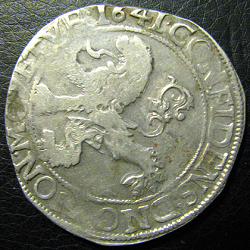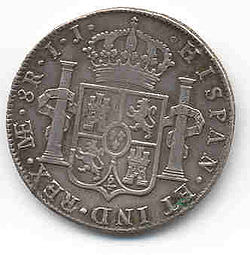I'm wondering what the purpose was. As opposed to just pitching the tents on the ground like normal. Did they only have access rights to a 10'x15' plot of land in the middle of the field? One madman with a SawZall could take the whole thing down in less than a minute. An F-150 with a tow strap might be even quicker. On the plus side, they probably don't have many ventilation issues. It would be good for bird watchers too. As long as you don't mind them roosting in your living room.
You are using an out of date browser. It may not display this or other websites correctly.
You should upgrade or use an alternative browser.
You should upgrade or use an alternative browser.
Post A Photo, A Real Photo
- Thread starter Sentry18
- Start date

Help Support Homesteading & Country Living Forum:
This site may earn a commission from merchant affiliate
links, including eBay, Amazon, and others.
- Joined
- Sep 4, 2020
- Messages
- 11,409
Last edited:
- Joined
- Feb 12, 2020
- Messages
- 4,393
The highrise campsite thing is pretty cool actually. If you build off the ground its less damp and less likely to get critters in things.
My old air handler unit (well, lower part of it)

New one

Guy from Atlas Home Service sweating the copper.

Copper all wrapped nicely (I will have to find a way to keep cats out-- need to replace the door the previous installers busted off in 2010. You can see a bit of the old grille in at the bottom.

Air purifier:

New grille. We will be installing the 2nd one directly next to it.

I need to clean up the wood and wall around it and use some Killz.
My old air handler unit (well, lower part of it)

New one

Guy from Atlas Home Service sweating the copper.

Copper all wrapped nicely (I will have to find a way to keep cats out-- need to replace the door the previous installers busted off in 2010. You can see a bit of the old grille in at the bottom.

Air purifier:

New grille. We will be installing the 2nd one directly next to it.

I need to clean up the wood and wall around it and use some Killz.
I'm wondering what the purpose was.
Pretty sure it wasn't to avoid lighting strikes!!!!
Sounds like a Kamala solution to over crowded camp grounds!
- Joined
- Dec 3, 2017
- Messages
- 24,510
Maybe it's an environmental thing to say Look How Green We Are and Saving the Earth
I'm sure the tent above the charcoal grill gets pretty warm!!

$34.43 ($11.48 / Count)
Home Acre Designs Food Storage Containers Set with Lids, Farmhouse Home Kitchen Decor Rustic Vintage Canisters
Novo Products

$29.97 ($9.99 / Count)
$39.90 ($13.30 / Count)
noonberry Kitchen Canisters for Countertop - Set of 3 - Airtight Coffee Tea Sugar Container Set - Country Rustic Farmhouse Canisters Sets for the Kitchen
noonberry

$26.09
$38.98
Membrane Solutions Portable Water Filter Straw Filtration Straw Purifier Survival Gear for Hiking, Camping, Travel, and Emergency, Blue, 4 pack
Membrane Solutions Corp

$22.99 ($7.66 / Count)
LF LIKEFAIR Farmhouse Kitchen Canisters Set of 3,Food Storage Containers for Home Kitchen, Tea, Herbs, Sugar, Salt, Coffee, Flour, Herbs (White & Black)
Likefair-Direct

$17.47
$19.95
LifeStraw Personal Water Filter for Hiking, Camping, Travel, and Emergency Preparedness, 1 Pack, Blue
Amazon.com

$34.95 ($8.74 / Count)
$49.95 ($12.49 / Count)
Barnyard Designs White Canister Sets for Kitchen Counter, Vintage Kitchen Canisters, Country Rustic Farmhouse Decor for Coffee Tea Sugar Flour Storage, Metal, Set of 4
Barnyard Designs USA

$19.99 ($6.66 / Count)
AuldHome Design Farmhouse Galvanized Canisters (Set of 3); Storage Containers for Coffee, Tea and Sugar in Galvanized Iron and Wood Design
ClockworkCornucopia

$11.99
$12.99
BEIYI Electric Fence Voltage Tester, Portable Fence Tester, Neon Lights Farming Equipment Testing Tool Fault Finder Max 1000V-8000V
Dariux fencing
Our favorite family photos from 11 years back.










Went to the little community of Logan Alabama today and played music. Got to see several friends, one brought me a half pint of Lions Mane tincture. We played at an old school/community center. The acoustics are actually pretty good there. Had a really good time, there were 4 rooms of pickers. I only made it through 3 before I ran out of energy. Played for about 3 hours. New pickers were stopping by as I was leaving... too tired to stay. It was time to come home.








I really envy you having the skills to do that. It sounds like so much fun!Went to the little community of Logan Alabama today and played music.
I play piano, but those things are difficult to lug around. Besides, I'm a printed music player. I play from sheet music, and practice. Memorization is not one of my major skills. I have to work at that. Nor am I a "by ear" player who can just join into a song - even one I know - on the fly. I guess it boils down to being a "solo player", not a "band player". That, ... and my music theory sucks! So I can't just wing things on the fly. That is a required skill for a true professional performer. They forget their memorized music too. But they can fall back to solid music theory and "make up" a forgotten part and the audience doesn't even have a clue (unless they know the piece on an intimate level themselves).
I am envious of folks that can play music like that, or in any way. I do good to play the radio. But I sure love music
It sounds like so much fun!
It is fun!!!! But I am handicapped when it comes to learning new songs because I can’t read music. I can only learn by playing along and in bluegrass it’s all improv. No two banjos or fiddles etc… are going to play the same song the same way. There is no ‘written in stone’ way to play any song. Today I played with several people I’ve never met. Some folks aren’t very adapt at telegraphing what they are about to do, makes for crappy music. Good pickers can telegraph, I always try to, more so when I’m playing with new people. I play a lot of rhythm without a bass. It falls on me or another guitar to supply the bass runs and signal chord changes. So today, even though I was having a blast, it’s hard work at times!!! I watch the other pickers like a hawk trying to anticipate what they are about to do. Especially on songs I’ve never played or years have passed since I did and I’ve forgotten the melody.
At the end of the day it’s sink or swim. So in the immortal words of Briscoe Darlin’….
Last edited:
Yup, KD has been a staple food in BC for as long as I can remember. I really like the flavour of that cheese.==
If I can find it, I will try it in a hot minute... Once anyway..
I've always liked Kraft Dinner, but the years I lived in norther BC really cemented my taste for it..
I will say as a side dish from KFC is not good.. But most anything from KFC in BC was not good anywhere.. I haven't been in a US KFC in 14+ years..
Apparently, I didn't get the memo. It's not a thing in my BC life.
Peanut.. I have been to a couple weekend 24 hour a day jams like that.. Just doing G chords on my old mandolin, spoons, wooden frog.. I just sat near someone loud and didn't worry if, when I hit clinkers..
One jam had a set of stair step young teen girls from a family that all played and the girls could yodel.. Another group was 2 to about 5 women who sang some of the nicest harmony you could imagine.. All I'm good for anymore is I can remember most of the words to several old Ian Tyson, Gordon Lightfoot tunes.. Also ..Whiskey Before Breakfast.. Duluth version..
==
Memo about Kraft Dinner... I don't need them, but I do miss Nanaimo bars, and table spoon size butter tarts...
One jam had a set of stair step young teen girls from a family that all played and the girls could yodel.. Another group was 2 to about 5 women who sang some of the nicest harmony you could imagine.. All I'm good for anymore is I can remember most of the words to several old Ian Tyson, Gordon Lightfoot tunes.. Also ..Whiskey Before Breakfast.. Duluth version..
==
Memo about Kraft Dinner... I don't need them, but I do miss Nanaimo bars, and table spoon size butter tarts...
In piano, classical piano specifically, you don't usually have the liberty to play things "differently". Of course you make them sound different via your interpretation when performing them. But if I am playing Chopin's Nocturne #2 for example, I am going to be playing the same notes and the same rhythms as any other performer of that piece. Sure, we'll have different tempo, dynamics, rubato, pedaling, how we roll chords, etc. - so each performers interpretation of a piece can sound markedly different than another's - but the notes we play will be the same. Exceptions for a "simplified" classical piece that is toned down for lower level players (usually in these cases some notes are simply left out to make things easier). Sometimes slight changes will be made to accommodate a performer. A good example would be some of Rachmaninoff's pieces. The guy had humongous hands. And he could stretch them to play huge chords. Some people have to roll the chord because their hands just won't spread that far to play each note simultaneously. And sometimes a note will be left out of the chord because it simply couldn't be reached by the performer. Liszt had a habit of being a show off, and he wrote pieces that would take rocket scientists years and years to analyse to figure out how in the heck to get your fingers to where they needed to go. OK, that's an exaggeration, but not much of one. You end up tucking your hands over and under each other, poking fingers in weird places to play what he wrote. The melody line can shift from hand to hand on a note by note basis. Not for the faint of heart.No two banjos or fiddles etc… are going to play the same song the same way.
Other genres besides classical are not necessarily subject to these same rules/conventions. But with classical, you pretty much play the piece as written, adding your own interpretations if appropriate (they aren't always appropriate). Pieces from some classical periods do not leave much room for interpretation. Baroque being an example. You play those as written. No rubato or "making it your own" through other interpretation. The Baroque period (Bach, Handel) was pretty strict - like a metronome. That started loosening as we moved into the Classical period (Mozart, Schubert - Beethoven was the bridge from the end of Classical into Romantic), then strictness went totally off the rails in the Romantic period (Chopin). Then things started tightening up again as we moved to the Impressionist period (Debussy). My favorite is the Romantic period, followed by the Classical period. I like listening to Baroque music, but I do not like playing it. Some of the Impressionist stuff is hard for me to get into, but then we have some really beautiful stuff and fun stuff to play like Debussy's Clair de lune from that period (Debussy despised being called an "Impressionist" BTW). Note that "classical music" refers to all these periods, not just the specific "Classical period".
==
Memo about Kraft Dinner... I don't need them, but I do miss Nanaimo bars, and table spoon size butter tarts...
Beat me with an old boot, but I haven't had a Nanaimo bar either. I actually learned about them from a Canuck in Venezuela, so they must be good. I can finally get with the program when it comes to butter tarts. Yummmm
Uh oh.


- Joined
- Dec 3, 2017
- Messages
- 21,769
You really won when you and Alex got together. You are both blessed.Our favorite family photos from 11 years back.
View attachment 167022View attachment 167023View attachment 167024View attachment 167025View attachment 167026
- Joined
- Dec 3, 2017
- Messages
- 21,769
Age certainly plays into memorization.I really envy you having the skills to do that. It sounds like so much fun!
I play piano, but those things are difficult to lug around. Besides, I'm a printed music player. I play from sheet music, and practice. Memorization is not one of my major skills. I have to work at that. Nor am I a "by ear" player who can just join into a song - even one I know - on the fly. I guess it boils down to being a "solo player", not a "band player". That, ... and my music theory sucks! So I can't just wing things on the fly. That is a required skill for a true professional performer. They forget their memorized music too. But they can fall back to solid music theory and "make up" a forgotten part and the audience doesn't even have a clue (unless they know the piece on an intimate level themselves).
A friend of mine plays guitar only by ear. She never took lessons and her family didn't have money to provide her with any. She never really learned to read music. At one point in time, she wanted to be certified in music education, but the instructors in one of the required classes were not kind to her about not knowing how to read music so she dropped the idea of getting certified in music education. Friend struggles with math, probably has dyscalculia. I have wondered how that impacts her ability to learn to read music? The interesting thing is that she was a performer for a few years and supported herself after her divorce by performing. She and her current husband both play guitars and have both recorded albums.
Another friend, who plays for the Colorado Symphony and I have talked about playing the more common and more known pieces. Classical performers must have encountered pieces like Beethoven's 9th Symphony a few times in their work. How many rehearsals does it take to bring that back to your mind, to play it without multiple rehearsals? Perhaps violinists have the need for more practice than a French Hornist because they have much more to play. They cannot fake it when they are performing, because they do get evaluations periodically, and even French Hornists have to be well rehearsed, especially when performing with someone like the Colorado Symphony.
I really wanted to learn to play the piano growing up, but we did not have a piano. My two best friends both had pianos in their homes and when I was at their homes I would practice. I taught myself from their piano books and got through the first two books, started in Book C. I took a semester of piano in college, but I was too busy between taking a full load of classes, working 20+ hours a week in work-study, and then studying to take the time to practice. I do know that age was now against me, but not 100%. I do know that minimally, 30 minutes a day is good, but even more time is better. I realized that that was not the time to learn the piano.
I think that like learning many things, there are better times in our lives to learn basic skills, such as learning to read or basic math. I was once asked to tutor a 6th grader in math. He had never learned any math facts and certainly was past the time in his life to learn them. How in the world can someone like that even begin to reduce fractions in 6th grade? Well, they really can't without a lot of drill, and drill is boring, especially for a 6th grade boy who never did drills when he was of the right age to learn basics. I never did drills with students, but gave them tools to practice math facts to commit them to memory.
To me music is one of the most basic forms of human expression. No different than with a paint brush or drawing on a cave wall with a piece of charcoal, just instruments to convey personal expression. When it comes to music play it the way you feel it! Whether with voice or an instrument. Ridged memorization of a sequence of notes is the antithesis of personal expression, imho. There are traditionalist in bluegrass who try to tell others how a song should be played. I laugh every time I hear one...
Last edited:
It was in my mother little box of all kind of things
The 1944 dime too

The 1944 dime too

Those were in my family as well


Some of my mini toys when I was a kid
My sister and I were fighting to know who would be the owner
of those mini toys
She kept a lot of those too from our childhood on her own
Here mine

My sister and I were fighting to know who would be the owner
of those mini toys
She kept a lot of those too from our childhood on her own
Here mine

For those who do not visit the military or happy birthday threads, today is the Marine Corps birthday. And it's a big thing to those devil dogs.


- Joined
- Sep 7, 2013
- Messages
- 18,898
These four coins were important in the evolution of the American Silver Dollar. These are pictures of my coins.
Maria Theresa Thaler, the thaler was a standardized silver coin that was minted by multiple European countries and used for 400 years in Europe and the Middle East.

Dutch 1641 daalder, which was the Dutch word for thaler. The daalder was used in Dutch colonies in America. The English word for thaler was "dollar." Any thaler sized coin was called a "dollar" in English.

Pieces of Eight. So called because it was worth eight Reales. To make change, the coin was cut into four or eight pieces. A one reale piece was called a "bit." Two of the bits made a fourth of the coin (origin of the name "two bits" for a quarter). The "cross" on the coin was actually to show where to cut it into quarters.
The Spanish crudely hammered their silver mined in the Americas into thaler sized coins that were then shipped to Spain and melted down to be made into milled coins.

Later, the Spaniards began milling the pieces of eight into more standardized coins. These were the most abundant and reliably accurate coins in the American colonies. When the United States was formed, the definition of the American dollar was based on the "Spanish Milled Dollar." The Spanish coins continued to be legal tender well into the 1800s.

The ships full of Pieces of Eight had to travel through the Caribbean where they were often captured by pirates. This is why the Spanish coins were so abundant in the colonies.
This is where the "$" symbol came from

Maria Theresa Thaler, the thaler was a standardized silver coin that was minted by multiple European countries and used for 400 years in Europe and the Middle East.

Dutch 1641 daalder, which was the Dutch word for thaler. The daalder was used in Dutch colonies in America. The English word for thaler was "dollar." Any thaler sized coin was called a "dollar" in English.

Pieces of Eight. So called because it was worth eight Reales. To make change, the coin was cut into four or eight pieces. A one reale piece was called a "bit." Two of the bits made a fourth of the coin (origin of the name "two bits" for a quarter). The "cross" on the coin was actually to show where to cut it into quarters.
The Spanish crudely hammered their silver mined in the Americas into thaler sized coins that were then shipped to Spain and melted down to be made into milled coins.

Later, the Spaniards began milling the pieces of eight into more standardized coins. These were the most abundant and reliably accurate coins in the American colonies. When the United States was formed, the definition of the American dollar was based on the "Spanish Milled Dollar." The Spanish coins continued to be legal tender well into the 1800s.

The ships full of Pieces of Eight had to travel through the Caribbean where they were often captured by pirates. This is why the Spanish coins were so abundant in the colonies.
This is where the "$" symbol came from

Last edited:


































